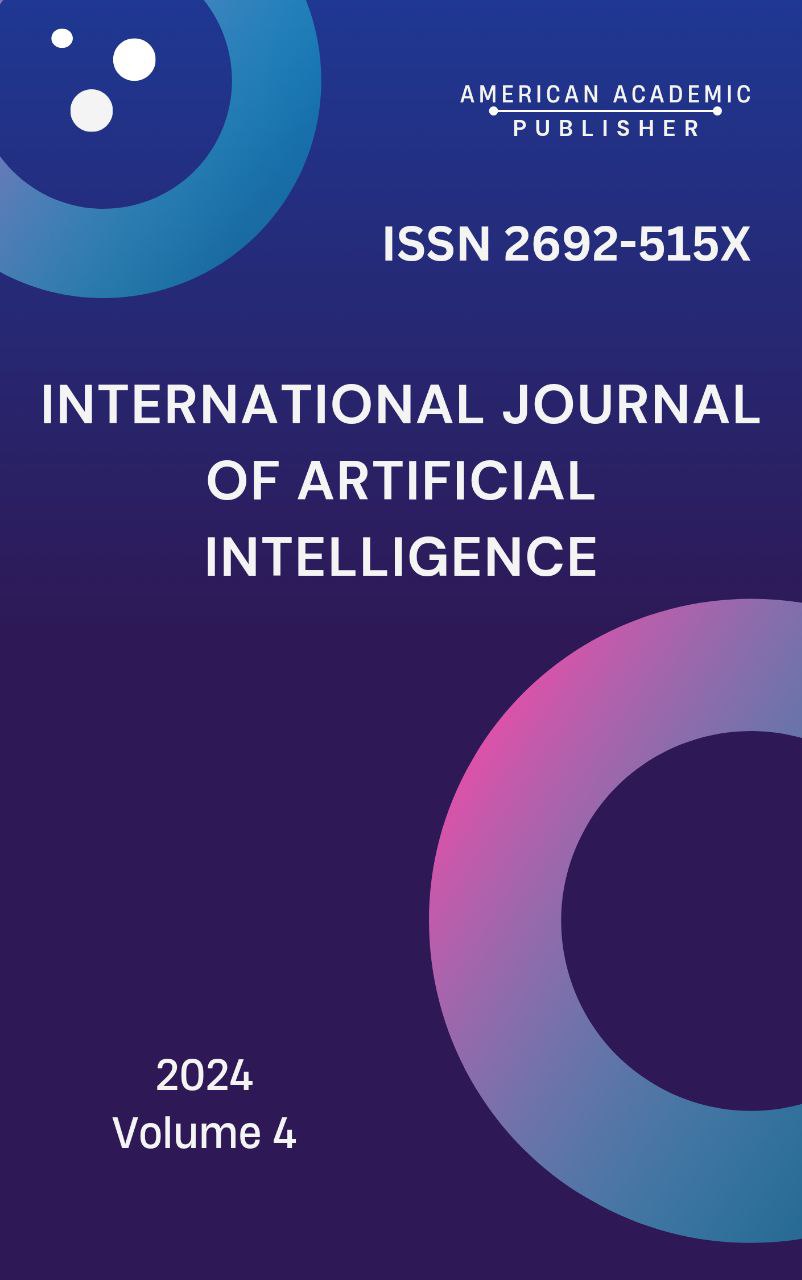 Articles
| Open Access |
Articles
| Open Access | DEVELOPMENT OF INTELLECTUAL POTENTIAL STUDENTS IN THE DEVELOPMENT OF HIGHER EDUCATION
Aziza Akmalova,Xaydarov Abdugappar Toshpulatovich , Named after Mirzo Ulug`bek National University of Uzbekistan,Toshkent Uzbekistan,O‘zMU f-m.f.n. dotsAbstract
The article focoses on measures aimed at increasing the potential and ability of students.In the article in elevated education In higher education, the Annotal Teacher's importance is significant in the course of today's science, modernization processes, globalization processes for innovative public, training specialists, exercise, training systems, pedagogical function, to modernize the efficacy of pedagogical activities. Digitization of education involves continuity and completeness.
Keywords
Education, intellecting, Online Education intellectual, competent, Educational Technology, creativity, teacher, Digital Literacy talent, science, pirls. pies, pirls. digitalization,
References
Tikhomirov V. P. Mir na puti Smart education. For new opportunitiesrazvitiya // Otkrytoe obrazovanie. 2011. No. 3. S. 22-28. 7.
Glasswell K., Davis K., Singh P., McNaughton S. Literacy lessons for Logan learners: A smart education partnership project // Curriculum Leadership. 2010. Vol. 31. No. 8. P. 1-4.
Jang S. Study on Service Models of Digital Textbooks in Cloud Computing Environment for SMART Education // International Journal of U- & E-Service, Science & Technology. 2014. Vol. 7. No. 1. P. 7382.11.
Kim BH, Oh SY A Study on the SMART Education System Based on Cloud and N-screen / Journal of the Korea Academia-Industrial Cooperation Society. 2014. Vol. 15. No. 1. P. 137-143.
Middleton A. Smart learning: Teaching and learning with smartphones and tablets in post-compulsory education [Electronic resource]. URL: https://www. academia.edu/12512765/
Smart_learning_teaching_and_learning_with_smartphones_and_tablets_in_ post_compulsory_education (data processing: 08/21/2021).
Hartley, R., Kinshuk, Koper, R., Okamoto, T., & Spector, JM (2010). The education and training of learning technologists: A competencies approach. Educational Technology & Society, 13(2). – P. 206–216.
Januszewski, A., & Molenda, M. (Eds.). (2008). Educational technology: A definition with commentary. New York, NY: Routledge.
Merrill, M. D. (2002). Ffirst pprinciples of instructions. Educational Technology Research and Development, 50(3). – P. 43–59.
Ronghuai H., J. Michael S., Junfeng Y. (2019). Educational Technology, A Primer for the 21st Century. Lecture Notes. - 253 p.
Tokhirov, U. O., & Tursunov, J. E. (2012). Voprosy formation
methodological, cognitive i kreativnyx kachestv flying In Pedagogy: tradition i innovation(pp. 112-113).
12. Rakhmanov, HT (2018). SUBSTANTIATING THE PARAMETERS OF CLODS-DE- STRUCTURING BODY. OF THE INTEGRATED ASSEMBLY. Scientific-technical jour- nal, 1(2), 127-130.
13. Sotvoldiyev, E., Khamdamova, V., Ibragimova, M., & Usmanova, M. (2020). PREPARING STUDENTS FOR BUSINESS ACTIVITY IN SCHOOL TECHNOLOGY CLASSES. European Journal of Research and Reflection in Educational Scienc- remember, 8(2), 1-1
14. Ibragimova, M., Usmonova, M., & Yusufkhodjaeva, F. (2022). This article dis- cusses the idea that preparing students for work at the current stage of educa- tion is one of the most important issues in the education and upbringing of the younger generation. Innovative organization of technological education. Obshchestvo i innovation, 3(5/S), 153-157.
15. Wang Q., H. L. Woo H.L., Quek C. L., Yang Y. and Liu M. Using the Facebook group as a learning management system: An exploratory study. Br. J. Educ. Technol, 2012, 43(3): 428□438.
16. Shea P. and Bidjerano T. Understanding distinctions in learning in hybrid, and online environments: an empirical investigation of the community of inquiry framework. Interact. Learn. Environ, 2013, 21(4): 355–370.
17. Saadé.R., Nebebe. F., and Tan.W. Viability of the‘ Technology Acceptance Model’ in multimedia learning environments: A comparative study. Interdiscip. J. E-Learning Learn. Objects, 2007, 3(1): 175–184.
18. Umarova R.U. Development of intellectual potential in the context of informatization of education // European Journal of Research and Re□ection in Educational Sciences Vol. 8 No.12, 2020.Part III ISSN 2056-5852, □ B.56-59.
19. .Akmalova A. INCREASING THE INTELLECTUAL POTENSIAL OF STUDENTS IN THE CONDITIONS OF DIGITALIZATION “UzMU xabarlari” 2024, [1/4] ISSN 2181.
20. Akmalova A., Xaydarov A., Pardayeva G. DEVELOPMENT OF STUDENTS' INTELLECTUAL COMPETENCE IN THE CONDITIONS OF DIGITALIZATION OF HIGHER EDUCATION. “UzMU xabarlari” 2023, [1/12/2] ISSN 2181.
21. Khaydarov A.T., Akmalova A.N.Development of intellectual potential students in the development of higher education. Actual problems of applied mathematics and Information technologies - al-Khwarizmi 2024 22-23 October 2024, Tashkent, Uzbekistan.
Article Statistics
Downloads
Copyright License

This work is licensed under a Creative Commons Attribution 4.0 International License.

